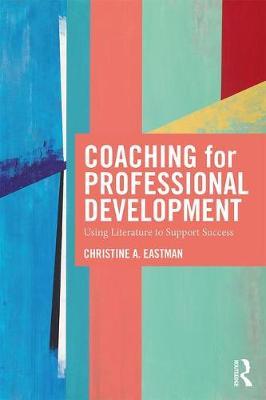Coaching for Professional Development

Coaching for Professional Development
Eastman argues for literature as a coaching tool, detailing how using stories of loss, failure, alienation and human suffering in a coaching dialogue bring positive results to organisational coaching. Coaching for Professional Development considers how reading fiction helps us to imagine lives outside our own, and how this sensitivity of language brings out the unconscious within us and others. Eastman discusses how she guided her students to embrace literature as a positive influence on their coaching practice through literary texts. Chapter 1 begins by exploring how reading Melville's Bartleby the Scrivener allowed her students to understand the importance of metaphor in their own coaching, with Chapter 2 illuminating how Cather's Neighbor Rosicky addresses the role of emotion. After this, Eastman considers how John Cheever's multi-layered story The Swimmer provides rich stimulus for coaching students in understanding failure, how Miller's Death of a Salesman shows how our family relationships are reflected in our office dynamics, and how the reactions of her students engaging with Lampedusa's The Leopard are more effective than the traditional coaching tool, Personalisis, in revealing their personality. She finally looks at Shakespeare's The Tempest for exploring themes of power and manipulation in a coaching context. By applying coaching models to fictional scenarios, Eastman demonstrates that coaches, HR professionals and students can successfully extend the boundaries of their coaching, strengthen their interventions and enhance their understanding of theory.
PRP: 203.93 Lei
Acesta este Prețul Recomandat de Producător. Prețul de vânzare al produsului este afișat mai jos.
183.54Lei
183.54Lei
203.93 LeiLivrare in 2-4 saptamani
Descrierea produsului
Eastman argues for literature as a coaching tool, detailing how using stories of loss, failure, alienation and human suffering in a coaching dialogue bring positive results to organisational coaching. Coaching for Professional Development considers how reading fiction helps us to imagine lives outside our own, and how this sensitivity of language brings out the unconscious within us and others. Eastman discusses how she guided her students to embrace literature as a positive influence on their coaching practice through literary texts. Chapter 1 begins by exploring how reading Melville's Bartleby the Scrivener allowed her students to understand the importance of metaphor in their own coaching, with Chapter 2 illuminating how Cather's Neighbor Rosicky addresses the role of emotion. After this, Eastman considers how John Cheever's multi-layered story The Swimmer provides rich stimulus for coaching students in understanding failure, how Miller's Death of a Salesman shows how our family relationships are reflected in our office dynamics, and how the reactions of her students engaging with Lampedusa's The Leopard are more effective than the traditional coaching tool, Personalisis, in revealing their personality. She finally looks at Shakespeare's The Tempest for exploring themes of power and manipulation in a coaching context. By applying coaching models to fictional scenarios, Eastman demonstrates that coaches, HR professionals and students can successfully extend the boundaries of their coaching, strengthen their interventions and enhance their understanding of theory.
Detaliile produsului










